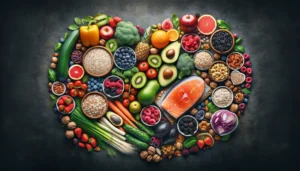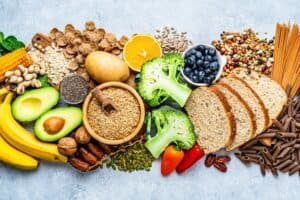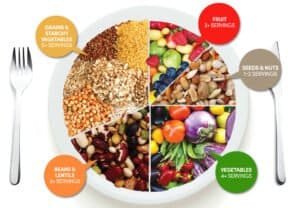Introduction
As the days grow shorter and the air takes on that unmistakable autumnal crispness (my absolute favourite), it’s clear that the back-to-school season is upon us here in Ireland. While the focus often lands on school or sport supplies, new uniforms, or the latest tech gadgets for teens, there’s another crucial aspect that often gets overlooked: preparing your child mentally and physically for the academic year ahead in school. This isn’t just about ensuring they have all their textbooks; it’s about setting them up for success by optimising their energy levels and concentration.
You might be wondering, “Why are energy and concentration so important for students?” Well, the answer is simple yet profound. Students who are energised and focused are more likely to excel in their studies, participate in class, and engage in meaningful learning experiences. They are the ones who can grasp complex concepts, solve challenging problems, and contribute positively to group activities. In short, good energy levels and concentration are the building blocks of academic (and sporting) success.
Research in this area
If you’re still not convinced, let’s delve into some statistics and data. According to scientific research, students who ate breakfast had greater success in
- tests
- GCSEs
- task behaviour, academic performance (Literature review of 36 articles)
In another study, primary school children who attended a public free lunch program for up to 5 years had reading scores that were 18% higher than those of students with less than 1 year of school lunches, and they also showed a 9% improvement in maths.
Additionally, students who ate a balanced diet rich in essential nutrients performed better in their exams compared to those who didn’t. These aren’t just numbers; they’re a testament to the immense impact that energy and focus can have on a child’s educational journey.
Let’s go!
So, as we gear up for the new school year, this article aims to be your comprehensive guide on how to boost your child’s energy levels and concentration. We’ll explore various factors that can influence these crucial aspects, from diet and sleep to exercise and stress management. We’ll also provide actionable tips and delve deep into the science behind each factor, ensuring you have all the information you need to help your child thrive.
Factors Affecting Energy and Concentration
Diet
Diet is the cornerstone of both physical and mental well-being, acting as the fuel that powers your child’s body and mind. The nutrients they consume directly impact their cognitive functions, including memory, attention, and problem-solving skills.
Key Nutrients
- Protein: Essential for growth and repair, protein also plays a role in the production of neurotransmitters, the brain’s chemical messengers.
- Sources: Child-friendly options include fresh meat, fish, dairy and scrambled eggs. In our house, our super handy vegetarian options for dinner time include paneer and baby mozzarella balls.
- Snack Idea: A small bowl of Greek yogurt topped with berries is not only delicious but also rich in protein. However, just remember that not all yoghurts are created equal so make sure you understand how to pick a healthy yoghurt.
- Iron: This mineral is crucial for oxygen transport to the brain, enhancing cognitive control and facilitating learning.
- Sources: Peas (yes, the frozen kind!), baked beans, and lean beef burgers are great for kids.
- Meal Idea: Simply get 400g of lean beef mince (less than 5% fat), add an egg, mix together and mould into burger shapes. It’s that easy.
- B Vitamins: These vitamins help convert dietary energy into ATP (adenosine triphosphate), the form of energy the body uses. They also support neurotransmitter function.
- Sources: Wholegrain pasta, bread and fortified breakfast cereals are kid-friendly.
- Snack Idea: Whole-grain toast with mashed banana or chia jam offers a good dose of B vitamins and is usually a hit with the younger crowd.
- Omega-3 Fatty Acids: These fats are known to support healthy brain function. There have been studies suggested that it helps reduce symptoms of ADHD in children. However, I’ll delve into that research in another post.
- Sources: Fish like salmon can be made into fish cakes or served on it’s own (you may find a honey-based dressing helps them eat it!).
- Meal Idea: Mini salmon cakes with a side of mashed potatoes and steamed carrots make a nutrient-packed meal.

Sleep
Adequate sleep is paramount for cognitive functions like memory, attention, and logical reasoning. Sleep deprivation can lead to decreased alertness and impaired memory, making it difficult for your child to focus in class.
| Age | Hours of Recommended Sleep per 24 hours |
| 3 to 5 years | 11 to 12 hours |
| 6 to 12 years | 9 to 12 hours |
| 13 to 18 years | 8 to 10 hours |
- Tip: A consistent sleep schedule, even on weekends, can significantly improve sleep quality. For more insights on achieving restful sleep, you can check out our 10 tips for better sleep.

Exercise
Physical activity is a natural energy booster that also aids in concentration. Exercise increases blood flow to the brain, enhances neurotransmitter levels, and can even improve the brain’s plasticity (ability to change).
- Types of Exercise: Kid-friendly aerobic exercises like skipping, swimming, and dancing can be both fun and beneficial. For more exercise tips, especially if your child is interested in long-distance running or are very active, our training for a marathon blog offers valuable information (I’m certainly not suggested they run a marathon, but the info supplied in this article is transferable). *caffeine isn’t recommended for kids or teenagers! (article on kids nutrition for sport coming soon…)

Stress Management
Stress and anxiety can be energy-draining and detrimental to your child’s focus. Recognise the signs of stress which include irritability or anger, changes in behaviuour, trouble sleeping, changes in eating habits, getting sick more often and neglecting responsibilities.
- Techniques: Be sure to focus on sleep and movement. Simple techniques like deep breathing and short breaks can help manage stress. Mindfulness may be beneficial, and there are some great apps out there. Talking it out or journally could be beneficial. Other things to focus on include time outside, especially in nature (‘vitamin N’) as well as making time for both fun and quiet.
- Seek help: Please go to your GP if concerned. A GP can refer to support services for you, and offer local recommendations on qualified therapists.
By understanding and addressing these factors, you can help your child achieve optimal energy levels and concentration, setting them up for academic success in their primary and secondary school journey.
Conclusion
As the school year kicks off, it’s essential to remember that your child’s academic success isn’t solely determined by the hours they put into studying. Factors like diet, sleep, exercise, and stress management play a significant role in shaping their energy levels and concentration. By paying attention to these aspects, you’re not just helping your child excel academically; you’re setting them up for a healthier, more balanced life.
From understanding the role of key nutrients like protein and iron to recognizing the importance of quality sleep and physical activity, every little change can make a big difference. And let’s not forget the impact of a stress-free environment, which can turn the ordeal of studying into a more pleasant experience.
So, as you prepare for the new academic year, consider this article your comprehensive guide to helping your child OWN their health and academic success. Take these science-backed tips and implement them into your daily routine; the results might just surprise you.
FAQ
1. What are the best foods for boosting energy?
Ideally meals should be balanced providing wholegrain carbohydrates, lean proteins, healthy fats and some fruit / vegetables. For more food ideas, you can browse our recipes section.
2. How much sleep do secondary school students need?
The recommended sleep duration depends on age and is always a minimum of 8 hours (8-12 hours per night). Please see the chart above.
3. Are there specific exercises that can help with concentration?
Aerobic exercises like jumping, dancing, and skipping can be beneficial for improving concentration. Slotting in 5 minutes at study breaks can make a big difference!
4. What are some stress management techniques for children?
Deep breathing, short breaks, and even simple mindfulness exercises can help manage stress.
5. How can I create a healthy study environment at home?
A well-lit room, comfortable seating, and a distraction-free space can make a significant difference. Keep an eye on them as well as an ear out!
6. How do omega-3 fatty acids affect brain health?
The brain is a big fatty blob, a complex one, but a fatty blob no less. You want omega 3 fats in your brains structure as this helps it perform better.
7. Can diet really affect academic performance?
Yes, a balanced diet rich in essential nutrients can significantly impact a child’s academic performance by improving their energy levels and concentration.
8. What are some quick, energy-boosting snacks?
Fruit slices with nut butter, Greek yogurt with berries, and whole-grain crackers with cheese are great options.
9. How can I ensure my child is getting enough iron?
Incorporate iron-rich foods like lean meats, lentils and peas into their meals. If you’re concerned about iron deficiency, consider booking a 1-to-1 consultation and let your GP know. Menstruating girls are at significant risk of low iron levels.
10. Where can I learn more about nutrition and its impact on academic performance?
For a deep dive into nutrition and its various benefits, consider enrolling in our Essentials of Healthy Eating course.











